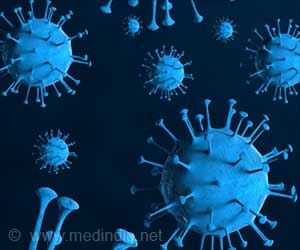- Environmental contaminants and psychological distress can diminish emotional well-being and lifespan happiness
- Cancer diagnosis doesn’t significantly reduce emotional happiness, but exposure to carcinogens can
- Integrating findings into environmental policies can enhance public health and happiness
If maintaining a consistently positive outlook were as simple as the adage “don’t worry, be happy,” navigating life’s challenges would be effortless. However, myriad factors beyond our control can influence our mood, as revealed in a recent study from Osaka University, detailed in Environmental Research (1).
’
Advertisement
How the Environment Impacts Our Mood
Researchers at Osaka University unveiled that environmental contaminants have an impact on our emotional well-being and lifespan. They introduced a pioneering risk assessment tool that quantifies “happy life expectancy” (HLE) – the duration of subjective emotional well-being – and “loss of happy life expectancy” (LHpLE), signifying the reduction in positive emotional experiences due to risk exposure.
Advertisement
Environmental Carcinogens Affect Happiness and Lifespan
Lead author Michio Murakami suggests that while this tool previously evaluated psychological distress and cancer risk post-Fukushima Daiichi Nuclear Power Station incident, its application to gauge the influence of cancer or environmental carcinogens on happiness marks a novel approach.
The study, incorporating surveys of Japanese individuals to gauge average happiness by age and gender, aimed to discern if cancer impacts emotional well-being. Surprisingly, findings indicated no significant decrease in emotional happiness among cancer patients, nor did cancer type, history, or stage correlate significantly with emotional happiness. However, exposure to environmental carcinogens like radon, arsenic, and fine particulate matter in the air marginally reduced HLE. Notably, psychological distress wielded a more pronounced impact, diminishing HLE by nearly a year.
Advertisement
Need of Environmental Policies to Help Improve Quality of Life
Lead author Murakami underscores the notable decline in HLE attributed to carcinogen exposure, highlighting the imperative for environmental policies aimed at mitigating such exposure. Integration of these insights into public health policies holds the potential to extend and enrich the quality of life for many individuals.
References:
- Comparing the risks of environmental carcinogenic chemicals in Japan using the loss of happy life expectancy indicator
Michio Murakami, Kyoko Ono, Yoshitake Takebayashi, Masaharu Tsubokura, Shuhei Nomura,
Comparing the risks of environmental carcinogenic chemicals in Japan using the loss of happy life expectancy indicator,
Environmental Research,
Volume 251, Part 1,
2024,
118637,
ISSN 0013-9351,
https://doi.org/10.1016/j.envres.2024.118637.
Source-Medindia



